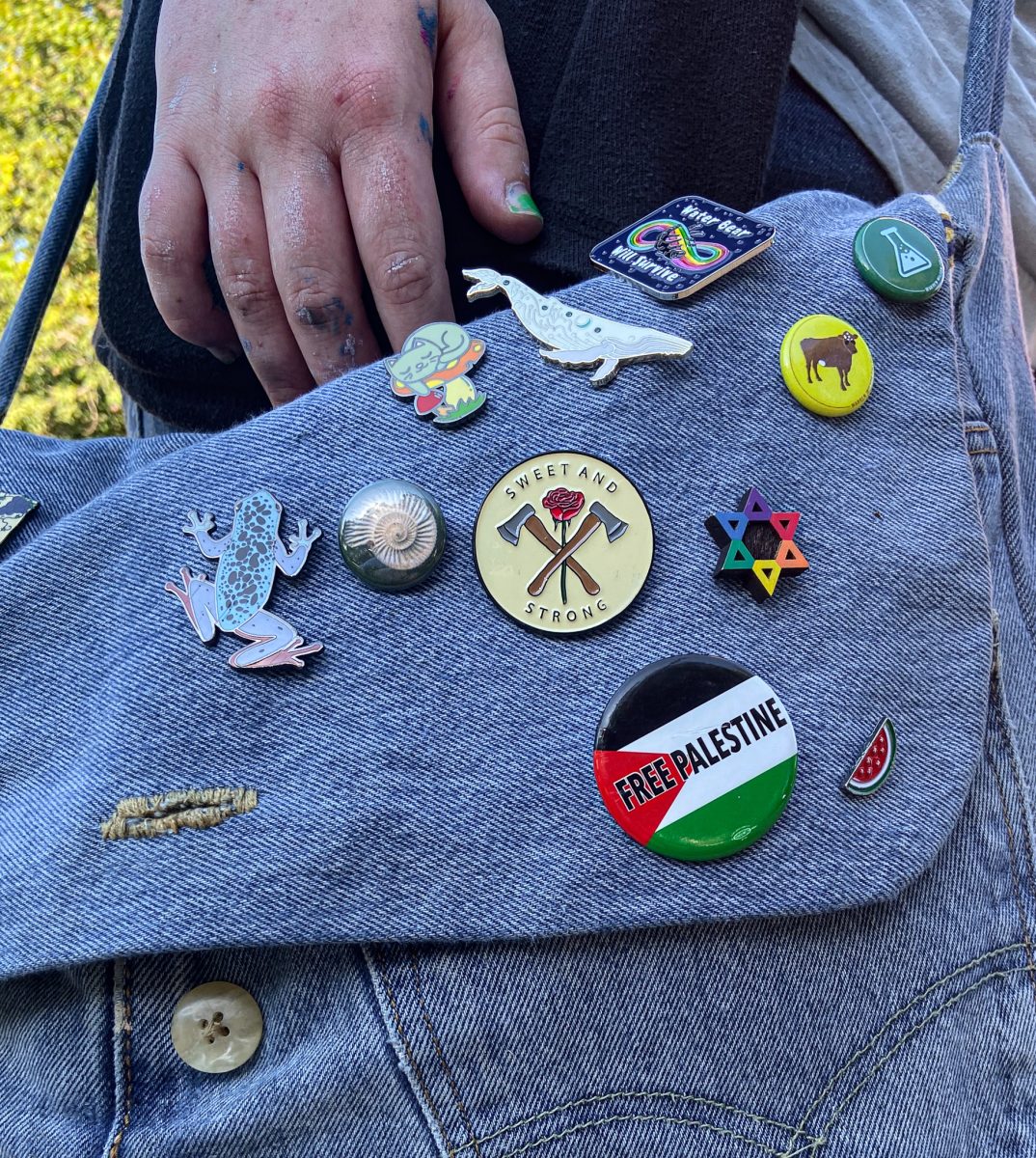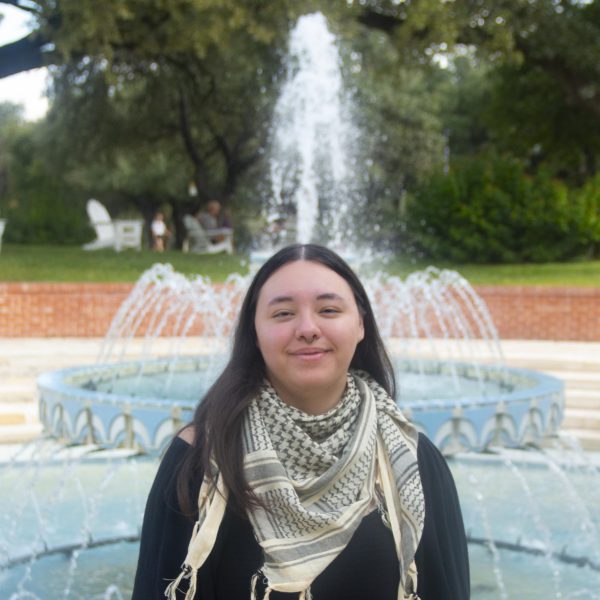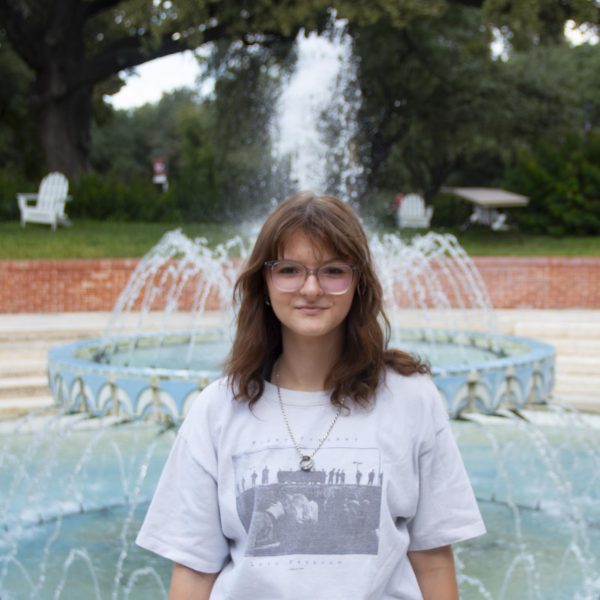Over the past year of constant bombing of Gaza by Israel following the Oct. 7 attack by Hamas, students and faculty have made continuous efforts at Trinity University to organize events related to the conflict.
Poetry readings, teach-ins and student-led protests such as chalk drawings and letter writing have sprung up across campus since October 2023. Despite the steady rate of continued events, student and faculty organizers have faced roadblocks from within Trinity, from local San Antonio communities and even from the state, and have expressed anxiety over showing solidarity.
Students held up Palestinian flags during the national anthem in the 2024 spring semester bachelor of arts graduation in solidarity with the Palestinian people. Cass Williams, Trinity graduate and one of the protest organizers, expressed concern with gathering supporters.
“I was a little bit wary about figuring out who to contact and who to let know that this was happening because I didn’t want to tell the wrong person and have someone, you know, like, try to put a stop to it,” Williams said.
According to Williams, the protest relied on her efforts to reach out on social media to trusted mutual and close friends. She stated that she was worried the backlash could potentially get the protest shut down before it even happened if word reached the wrong people.
“Afterwards there were some unhappy people, but I mean that happened after [graduation],” Williams said. “They didn’t know. So they weren’t able to try to reach out to anyone to try and put a stop to it.”
Faculty on campus who have also had a hand in these events experienced pushback from within the Trinity community and outside of it. Sajida Jalalzai of the religion department spoke about the first teach-in event hosted soon after the Oct. 7 attack and subsequent bombardment of Gaza. She said the event appeared to have gone over smoothly, being well attended and well received, until after the event was over.
“We had been alerted to some of the critiques or the pleas that had happened before the event that people had made to Academic Affairs to sort of shut it down,” Jalalzai said.
According to Jalalzai, Academic Affairs received phone calls and even a letter from the local San Antonio Hillel community, signed by the local Hillel chapter and students on campus, to stop the event. Ultimately, Jalalzai said Academic Affairs protected the event.
“[The event] also prompted a lot of conversations across campus with Academic Affairs and among the departments about the questions of policies such as departmental sponsorship,” Jalalzai said.
Challenges to Palestine-related events and protests came not only from within Trinity but at times from the state government as well. Lee Denney, senior history and museum studies double-major and student organizer, spoke about how Texas Governor Greg Abbott’s Executive Order 44 affected pro-Palestinian protests
“[Governor] Abbott issued an executive order, Order 44, that was addressed to student activism for Palestine … He made it so that all Texas higher institutions of learning had to … punish students in solidarity with Palestine,” Denney said.
Denney discussed that members of the Trinity community, in conjunction with other Texas schools, wrote letters demanding action from the institutions. When Denney and other students went to President Venessa Beasley’s office to present the letter, neither President Beasley nor Provost Megan Mustain were present. Afterward, Denney and others put up fliers around campus informing students about their actions and encouraging others to email President Beasley and Provost Mustain, providing contact information for both. However, Denney said they were being monitored.
“There was a TUPD officer following us,” Denny said. “Come to find out, the next day all the fliers were gone.”
Faculty and staff have expressed interest in continuing Palestine-related events. As the conflict overseas escalates, many are left to wonder what the future will hold abroad and at home for those trying to stand in solidarity. Despite the hardships, Jalalzai noted her hope for the future.
“Even though this [conflict] is like the worst most horrific thing that I’ve ever witnessed even from afar in my life, it is also the most hopeful I’ve ever been … This is the most involved that I’ve seen a lot of people,” Jalalzai said. “There is so much room for imagining a new reality. Imagining the possibilities, hopefully, for a more just world.”









